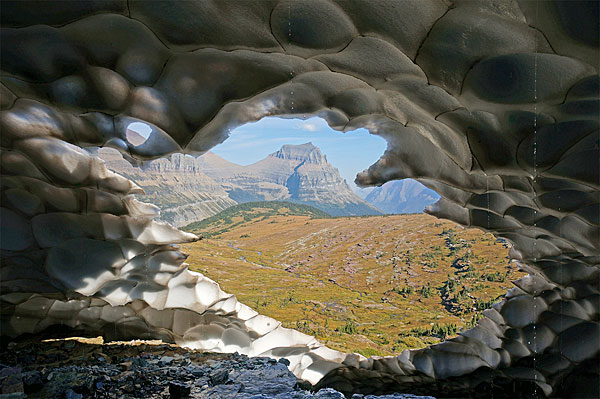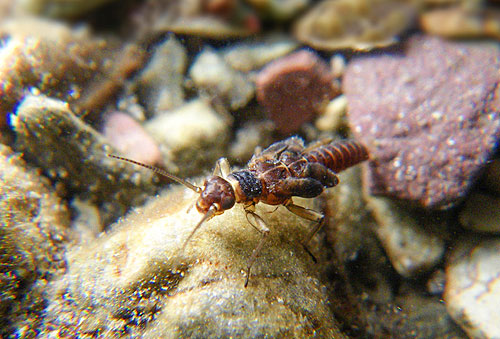New Study Shows Persistence of Meltwater Biodiversity Despite Glacier Loss

GLACIER NATIONAL PARK – Glaciers are retreating in Glacier National Park and across the globe due to climate change. Researchers have long predicted that the shrinkage and disappearance of glaciers will reduce biodiversity in mountain ecosystems as species that live in habitats influenced by glacier meltwater are lost.
However, a new study shows that a specialized community of cold-water invertebrates unexpectedly has persisted in the high-elevation streams of Glacier National Park, even in areas deglaciated since the Little Ice Age, nearly 170 years ago. The study was led by Clint Muhlfeld, a U.S. Geological Survey research ecologist and associate research professor at the University of Montana’s Flathead Lake Biological Station.
“This study is unique,” Muhlfeld said. “It’s the first to directly assess the impacts of glacier loss on the persistence of a large number of species across a mountainous region.”

Recently published in the prestigious journal Proceedings of the National Academy of Sciences, the research used high-resolution glacier retreat data from 1850 through 2015. This was combined with extensive stream community data from 129 sites to test whether glacier retreat has reduced biodiversity in Glacier National Park through the loss of uniquely adapted meltwater stream species.
“Although shrinking glaciers pose a significant risk to cold-water species, our results show that these mountaintop species may be more resilient to glacier recession than previously thought,” said Timothy Cline, a USGS ecologist and co-author on the study.
Researchers identified a specialized cold-water invertebrate community, which includes the Endangered Species Act-protected meltwater stonefly, living in the highest elevation streams fed not only by melting glaciers, but also snowfields and groundwater springs.
The study projects a 70% to 80% decline in suitable habitat by the end of the century, but not necessarily loss of this community, with the complete disappearance of glaciers.
“Our results demonstrate that high-altitude streams and snow-fed water sources will continue to serve as refuges for mountain biodiversity as glaciers soon disappear,” Muhlfeld said. “These findings highlight the need to protect these important landscapes while addressing the root causes of climate warming at a global scale.”
The researchers note that climate change impacts on mountain biodiversity are complex and uncertain. They emphasize the urgent need to assess the widespread impacts of climate-induced glacier loss in high-elevation mountain ecosystems.
Other co-authors on the study are: Joseph Giersch, Caitlin Florentine and Erich Pietzsch at the USGS Northern Rocky Mountain Science Center; Dean Jacobsen at the University of Copenhagen; and Scott Hotaling at Washington State University.
For more information about the study, email Muhlfeld at cmuhlfeld@usgs.gov or call 406-600-9686. The study is online at https://www.pnas.org/content/early/2020/05/12/2001697117.
Contact: Clint Muhlfeld, research ecologist and associate research professor, U.S. Geological Survey and UM Flathead Lake Biological Station, 406-600-9686, cmuhlfeld@usgs.gov; Ian Withrow, FBLS media/information specialist, ian.withrow@flbs.umt.edu.